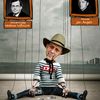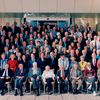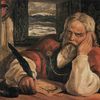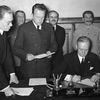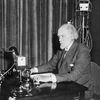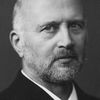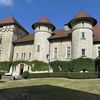5.12.2023 | 06:27
When Prometheus Becomes Procrustes
European Diary: Prague, November 2021
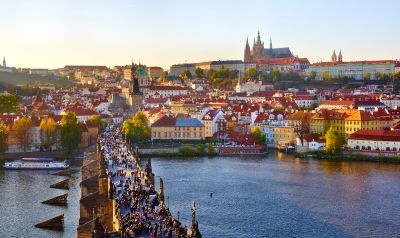 Unsurprisingly, Prague has become one of the most popular tourist destinations in Europe. It was long the capital of the Kingdom of Bohemia and the residence of several rulers of the Holy Roman Empire, and although that strange entity was neither Holy, Roman, nor Empire, its rulers certainly lived in magnificient palaces. Many of Prague’s impressive buildings date from the late Middle Ages, and the city mostly escaped destruction in the Second World War. It has a peculiar quaint charm, not least because of its many old churches, monasteries and private palaces: it is indeed called ‘the city of a hundred spires’. On the left bank of the Vltava River (Moldau), the Prague Castle towers over the city, the world’s largest ancient castle, with the picturesque fourteenth-century Charles Bridge connecting the two banks. On the right bank are the Old town, the New Town (which is also quite old) and the Jewish Quarter.
Unsurprisingly, Prague has become one of the most popular tourist destinations in Europe. It was long the capital of the Kingdom of Bohemia and the residence of several rulers of the Holy Roman Empire, and although that strange entity was neither Holy, Roman, nor Empire, its rulers certainly lived in magnificient palaces. Many of Prague’s impressive buildings date from the late Middle Ages, and the city mostly escaped destruction in the Second World War. It has a peculiar quaint charm, not least because of its many old churches, monasteries and private palaces: it is indeed called ‘the city of a hundred spires’. On the left bank of the Vltava River (Moldau), the Prague Castle towers over the city, the world’s largest ancient castle, with the picturesque fourteenth-century Charles Bridge connecting the two banks. On the right bank are the Old town, the New Town (which is also quite old) and the Jewish Quarter.
Two Meetings of the Mont Pelerin Society
I first visited Prague in 1991, attending a regional meeting of the Mont Pelerin Society, the international academy of liberal scholars that Friedrich von Hayek founded in 1947. The 1991 meeting was organised by the economist Vaclav Klaus who had been Finance Minister since 1989, when communism collapsed. He became Prime Minister of Czechoslovakia in 1992 and after the secession of Slovakia a year later Prime Minister of the Czech Republic for five years and then President for ten years, in 2003–2013. In the chapter on Milton Friedman in my two-volume book Twenty-Four Conservative-Liberal Thinkers I describe the comprehensive and successful economic liberalisation in Central and Eastern Europe which was inspired by Friedman and in the Czech Republic implemented by Klaus. My friend Birgir Isl. Gunnarsson, Governor of the Central Bank of Iceland, was my guest at the meeting, and the two of us had a good time at some of the city’s jazz clubs. A lawyer by training and a former Mayor of Reykjavik, Gunnarsson was a jazz enthusiast and an accomplished piano player.
In 2012, I returned to Prague to attend the general meeting of the Mont Pelerin Society, where Klaus, now President, played a major role. One night, he hosted an unforgettable party for us in the large gardens of his residence, the Prague Castle, in the mild September weather, with an unparalleled view of the city in the twilight. I used the occasion to chat with my old friend Dr. Edwin Feulner, who helped me a lot when I organised a meeting of the Society in Iceland in 2005. He was President of the Society in 1998–2000. I also had an interesting discussion with Professor Allan Meltzer, a renowned monetarist and author of a seminal work on the US Fed. He had recently written a book, In Defence of Capitalism. In Prague he was nominated President of the Mont Pelerin Society for 2012–2014.On another Prague night, I had dinner with an old friend, Elisalex, whose full name is Marie Elizabeth von Wuthenau-Hohenthurm. Her husband Eduardo Helguera was a member of the Mont Pelerin Society. Elisalex and Eduardo had been my gracious hosts when I visited Argentina in 1997. Then staying in her sister’s place on the Recoleta in the centre of Buenos Aires, I noticed a lot of books about Austria under the Habsburgs. I asked the sisters about their interest in this period. The explanation turned out to be that Sophie Duchess von Hohenberg, the wife of Archduke Franz Ferdinand of Austria and shot with him in Sarajevo in 1914, was their great-aunt, sister of their maternal grandmother. Indeed, Elisalex’ father, Franz Ferdinand von Wuthenau-Hohenthurm, was named after the Austrian heir to the Habsburg throne. He had emigrated to Argentina after the First World War, arriving penniless. The great-grandfather of the two sisters had been a Bohemian nobleman and diplomat, Bohuslav Count Chotek of Chotkowa and Wognin. Elisalex was not only attending the Mont Pelerin Society meeting, but also travelling in Central Europe to take a look at some of the castles that had belonged to her family in the past. A melancholic journey, I would think.
The Platform of European Memory and Conscience
I have also been a frequent visitor in Prague in connection with my participation since 2012 in the Platform of European Memory and Conscience which has its headquarters there. The Platform was established in 2011 at the urging of the European Parliament, and its main goal is to keep alive the memory of the many victims of totalitarianism in the twentieth century, the ‘ravaged century’, as Robert Conquest called it. I learned a lot from my conversations at Platform meetings in Prague with Mustafa Dzhemilev, leader of the Crimean Tatars, Sofi Oksanen, the award-winning Fenno-Estonian novelist, Vytautas Landsbergis, former President of Lithuania, Bishop László Tökes, a Hungarian-speaking former Romanian dissident and MEP, and Professor Stéphane Courtois, who in 1997 edited the seminal Black Book of Communism which I subsequently translated into Icelandic.
On 11–13 November 2021 the Platform held its annual Council of Members in Prague, alongside an international conference on the fateful year of 1991. I delivered the keynote paper at the conference where I argued that the failure of the Bolshevik Revolution in November 1917 was not primarily because the wrong people had made it (although that was certainly true), but because the Marxist project itself was unrealistic and therefore bound to fail. Thus, Stalinism and Maoism were the inevitable outcomes of Marxism. The main reason was that without a capital market there was no way of making rational decisions about the utilisation of capital goods, as the Austrian economists Ludwig von Mises and Friedrich von Hayek had demonstrated. The heroic Prometheus seizing fire from the gods, in Marxist mythology, therefore would turn into the vicious Procrustes trying to force all his guests to fit in the same bed. I recalled the failed coup attempt in the Soviet Union in August 1991 which provided an opportunity for the Baltic nations to reaffirm their independence after decades of occupation. My old friend, Prime Minister David Oddsson of Iceland, long a firm anti-communist, used the occasion to resume diplomatic relations with the Baltic countries. I emphasised that even if the Marxist project was bound to fail economically, it was by no means certain that communists would relinquish political power peacefully, as the Soviet coup attempt in 1991 indeed showed.
(The Conservative 26 November 2023.)
Flokkur: Stjórnmál og samfélag | Breytt s.d. kl. 06:45 | Facebook


